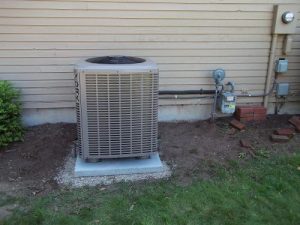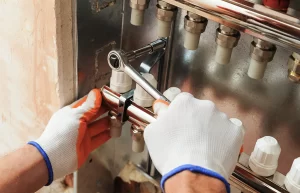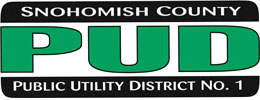If you’ve ever experienced water damage of any kind in your home, you know it can be disastrous and extremely expensive. Many water problems in homes don’t come from floods, storms or other problems outside, but caused by issues inside the home. Faulty or old plumbing can lead to big water problems in the home. If you think your plumbing needs a fix—small or large—it’s always a good idea to call a licensed professional to help you fix a severe (or potentially severe) issue. However, there are a few steps you can take to avoid a big problem, which we’ve listed below in part 1 of this blog series. Enjoy!
Tip 1 – Know where your main water shutoff is. While this may seem extremely obvious, it’s important to note as the first tip in this series. All capable members of your household should know where they main water shutoff for the home is. If any problems arise, from leaks to other types of damaged or faulty plumbing, turning the shutoff will cut off the main water supply to the house and help avoid a serious catastrophe. It’s also a good idea to shut off the main water valve for any bigger plumbing projects. When you do so, run a sink for a minute after the shutoff has been turned to relieve pressure in your pipes.
Tip 2 – Don’t over tighten plumbing fittings. While it may seem like you want the tightest seal possible for all plumbing, over tightening plumbing fittings of any kind can actually do a lot of damage rather than good. This can cause the threads to strip, which can lead to problems. You don’t want to tighten much more than hand tight. These fittings are made to prevent leaks without being overly tightened, so it’s best to avoid breaking or stripping them with too many turns of the wrench.
Tip 3 – Don’t turn on an empty water heater. Some people turn off water heaters when they leave their house for an extended vacation or other trip. When returning, they flip the power back on without making sure the tank has properly filled. This can nearly instantly ruin the water heater, leaving a big replacement project and bill. If your water heater has been off for a while and has been drained, always be sure the tank is completely full again before turning on the power and heat.
Tip 4 – Avoid the drain cleaner. While it may seem like an easy fix to clogged drains and other problems, drain cleaner can cause damage to your pipes (or septic system if you have one). It’s also not safe for your health. Removing clogs in the sink, shower or toilet with a plunger is the best first step. If that doesn’t work, an auger can be used to remove bad blockages.
As is the case with any home improvement project, it’s best to have complete knowledge of the project and potential hazards or mishaps before taking a crack at anything yourself. Especially when it comes to plumbing and potential water hazards in the home, these are issues you absolutely want to avoid. If you don’t feel 100% comfortable with the job, call in a professional like one of our qualified plumbers at BelRed to help.







